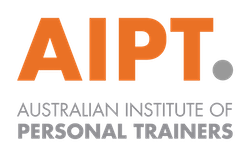Financial planner job description
Let’s get real. Job information online can often be overly optimistic — conveniently glossing over the raw bits. But when you’re making decisions about your future, you need all the facts.
That’s why we anonymously surveyed financial planners about their job, with hopes of getting an honest insight into what it’s really like.
While we did our best to ensure respondents were Australians and verified their job titles with proof of employment, we can’t guarantee complete accuracy — or that your experiences in the field will reflect theirs. So, we suggest that you take these insights as a guide only and try to talk to people in the field before making an important decision.
When considering how to become a financial planner or financial adviser, it’s important to remember that interpersonal skills are as important as technical knowledge in order to succeed in the role. People’s financial affairs are often a very delicate subject and almost inevitably any discussion of estates planning, life insurance or similar matters will touch on sensitive topics.
Financial planners need to be able to put people at ease and be able to discuss difficult issues in an appropriate manner. People of all ages, lifestyles, and aspirations will need financial advice, so the ability to work with a wide range of individuals in an effective manner is also important.
Tasks and responsibilities for a financial planner
The role of a financial planner is to offer knowledgeable financial advice which aims to help individuals organise and manage their personal finances effectively. The exact type of assistance a financial planner offers vary from client to client but include:
- Offer advice and information on financial products
- Provide financial goal setting
- Help deal with unexpected financial issues
- Provide risk management advice and strategies
- Advising on ways to make money work harder
- Provide accounting services
How to become a financial planner
-
Study a Bachelors
Complete an accredited Bachelors in Business (Finance/Financial Planning) or above level course. This usually takes at least three years of full-time study.
-
Complete work experience
Undertake a supervised year of experience in a professional and entry-level role. This usually equates to a minimum of 1600 hours.
-
Pass the exam
During your year of supervised work experience, you will be required to undergo and pass a mandatory financial adviser exam.
-
Achieve extra certification
The Certified Financial Planner (CFP) certification is optional but can improve employability.
-
Improving skills and career options
Complete an accredited postgraduate degree – a Diploma of Financial Planning or a Master of Financial Planning for further financial planning career pathways.
Pathway options
Junior
-
Claims Administrator
Most common qualification: Certificate IV in General Insurance (FNS41420)
-
Superannuation Consultant
Most common qualification: Diploma/Bachelor of Business (Finance)
Mid
-
Financial adviser
Most common qualification: Bachelor of Business (Finance)
-
Insurance/Risk adviser
Most common qualification: Bachelor of Business (Finance)
Senior
-
Business development manager
Most common qualification: Bachelor in Business/Commerce
-
Compliance Manager
Most common qualification: Certificate IV in Compliance and Risk Management (10131NAT), or a Diploma of Quality Auditing (BSB51615)
Explore related qualifications
To get the skills and knowledge you need to work confidently as a financial planner and to be in the best position to gain employment, explore these financial planning courses:
Bachelor of Business with a Major in Financial Planning
This course provides you with the skills and knowledge in professional financial planning. You’ll cover financial management, taxation, ethics, retirement planning, investments and financial risk. The average duration for this course is three years. You can study full-time or part-time, with flexible study methods available from some course providers.
17 providers offer this course

















Bachelor of Business with a Major in Accounting and Financial Planning
This course covers a combination of business, management and operations, setting you up for a career in the financial planning and accounting industry. This qualification meets many education association requirements and is highly accredited. The average duration of this course is three years. Study online and enrol.
17 providers offer this course


















